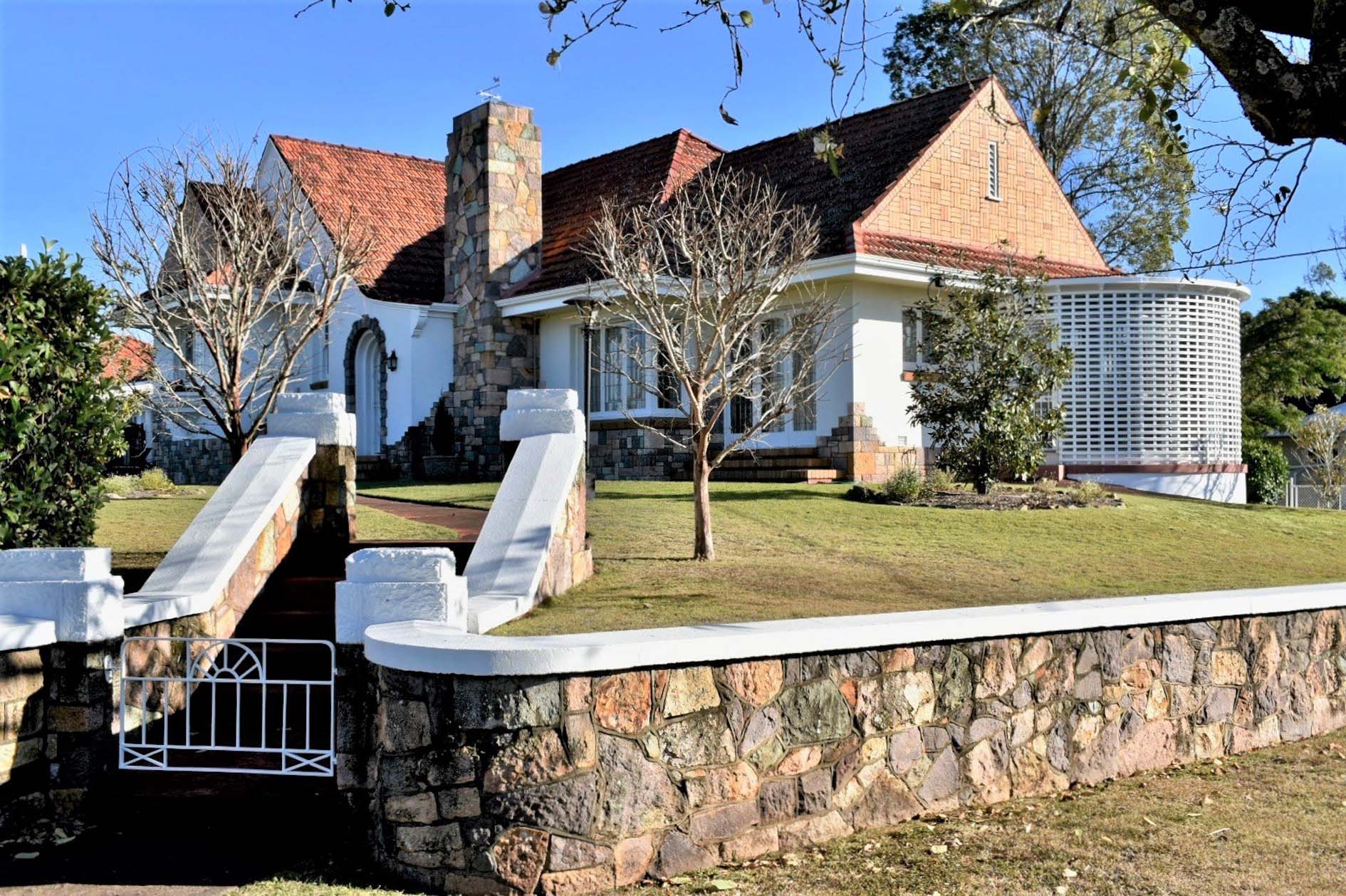Three historic homes will open their doors to the public next week for the National Trust’s Great Houses of Ipswich.
Visitors to the Duce House, Collingwood and Woodlands of Marburg will have a chance to explore parts of the homes and grounds that have never before been open to the public.
It’s the first time that all three homes are brick homes, and the first time a post-war era home has been featured in the Great Houses of Ipswich.
The Duce House
88 Brisbane Road, East Ipswich
Successful Ipswich racehorse owners, Norm and Norma Duce, built their home on the corner of Brisbane Road and Fox St in 1952.
The Duce House (pictured above) has won an Ipswich City Council Award for Excellence as a Best Maintained Heritage Property.
With many original features, including a pipe door chime, semi-circular window flower box and patchwork concrete driveway, the Duce House was renowned in the ‘50s and 60’s for its pergola and swimming pool, which is thought to be the first private pool in Ipswich.
The current owners bought the Duce House in 2007 and have since refurbished the kitchen, and re-instated the pool that had been filled in.
Woodlands of Marburg
174 Seminary Road, Marburg
Built between 1889 and 1891, this magnificent Victorian era style home was designed by locally renowned architect, George Brockwell Gill for sugar cane and timber producer Thomas Lorimer Smith, his wife Mary and their 11 children.
Currently cared for by custodians, this local heritage icon boasts picturesque gardens, a secluded grotto, quaint timber chapel, graveyard, and its own vineyard.
As the home to St Vincent’s Seminary for 40 years, Woodlands of Marburg was later purchased by Ipswich Grammar School and more recently as a venue for wedding receptions.
Staff have reported hearing and seeing the ghost of a young boy known as Billy, who is thought to have drowned in the pool when the property was operating as a seminary.
“He has been known to flick all the napkins off a recently set table once staff have left the room and likes to wait until the mansion is closed for the day and then go around turning lights on,” the caretaker said.
Collingwood
15 Murphy Street, Ipswich
Built in stages from the 1860’s to the 1880’s, Collingwood was constructed by building contractor William Hancock. Built as a six room, two-storey residence, the site included a detached brick kitchen and a two-stall stable at the rear.
The first owner of the 15 Murphy Street allotment was investor and member of Queensland’s first Parliament, Patrick O’Sullivan.
According to Hancock family history, 15 Murphy Street is one of three brick houses in a row that William Hancock built from the 1860’s, the others being the heritage-listed Brickstone at 11 Murphy Street and Cornubia at 13 Murphy Street, which became the Hancock family home after 1875.
The Georgian era home remains relatively intact. In the 1930’s, the wall between two rooms on the first floor was removed to create one room.
An enclosed breezeway now connects the ground floor to the once detached kitchen and a scullery provides a link to the old stable, which is now a bathroom.
Great Houses of Ipswich is on Saturday 7 September from 10am – 4pm.
Entry is free to National Trust members and $5 per house for non-members. Children and students are free.
A Heritage bus tour includes access to all three homes, commentary from a local guide and a Devonshire tea at the Ipswich Visitor Information Centre.
Read more:
>>> Tiny houses open the door to Ipswich history

